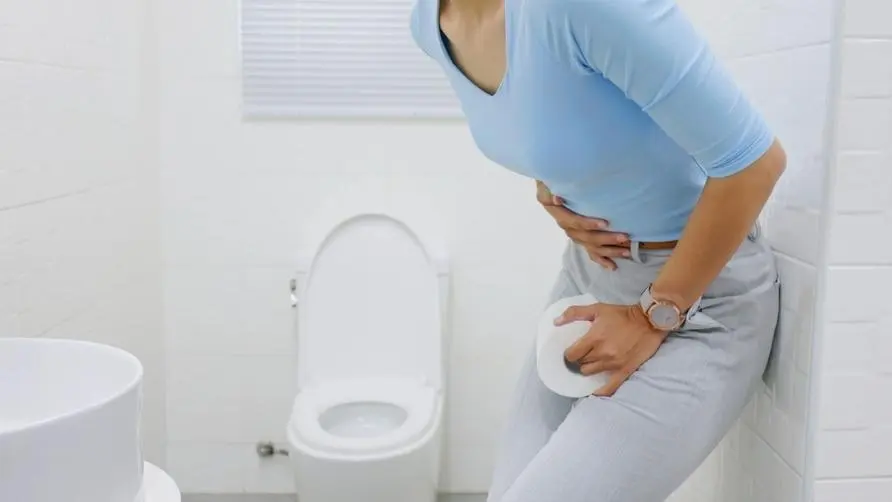She had an irritable bowel syndrome and couldn't go to work! The doctor recommends 1 surgery to improve: No need to worry about the "feeling of death" coming

Severe abdominal cramps, diarrhea and other troubles always occur on important occasions. Should you pay attention to whether this may be a sign of “irritable bowel syndrome”? Dr. Ye Hongxuan of the Pain Treatment Center of Renai Chang Gung Memorial Hospital said that he had previously treated a 22-year-old female patient. Her main complaint was that she had been experiencing severe abdominal cramps and diarrhea for some unknown reason since many years ago. Not only was she unable to go to work, but she also did not dare to go to work. Take a trip or participate in an outdoor activity.
She had an irritable bowel syndrome and couldn’t go to work! 1Surgical intervention no longer has to worry about the “feeling of death”
The patient went to an outside hospital for gastroscopy, colonoscopy, stool and blood tests, all of which showed normal results. In the end, he was diagnosed with “irritable bowel syndrome,” also known as irritable bowel syndrome. The patient said that during the illness, he was complicated by symptoms such as insomnia, stomach bloating, chest tightness, cold and numb hands and feet, sweaty hands, inability to concentrate, irritability and dryness, and in severe cases, a pale face and breathlessness, which had caused great difficulties in his life. Troubled.
Dr. Ye Hongxuan pointed out that the patient was immediately recommended to undergo “Stellate Ganglion Block” (SGB). After multiple treatments, the female patient’s diarrhea and abdominal pain were significantly improved, and other symptoms were also significantly relieved. Not only was she able to go to work normally, she no longer had to worry about a sudden “feeling of death” when traveling far away or on important occasions, resulting in The embarrassing dilemma of frequent trips to the toilet.
Is irritable bowel syndrome more likely to occur in younger women? Doctors reveal 6 major criteria for clinical diagnosis
Dr. Ye Hongxuan said that the activities of the digestive tract are controlled by the nervous system. Except for the beginning (esophagus, such as swallowing) and the end (anus, defecation) of the digestive tract, which can be controlled autonomously, the rest of the gastrointestinal activities are controlled by the autonomic nervous system and cannot Take control yourself. Irritable bowel syndrome is a disease caused by mental stress. The reason is autonomic nervous system disorder, which in turn causes abnormal movement and secretion function of the large intestine.
Dr. Ye Hongxuan pointed out that irritable bowel syndrome is characterized by chronic abdominal pain and changes in bowel habits, but without any organ disease. It usually affects young women, and its clinical manifestations include: chronic lower abdominal pain or cramping (combined with the feeling of having a bowel movement), symptoms that are aggravated by stress or after meals, and pain that improves after defecation. The cause is not entirely known, but it may be related to genetic and environmental factors, increased intestinal sensitivity to food and stress, and the immune system.
Dr. Ye Hongxuan said that in fact, irritable bowel syndrome is not caused by intestinal lesions, but by functional disorders of the intestines. The diagnostic criteria include:
The pain will be relieved after defecation;
The frequency of defecation increases during pain;
Soft stool;
Obvious abdominal distension;
There is mucus in the stool;
There will be a feeling of incomplete defecation.
Eat regular meals and choose food sources carefully! People with irritable bowel syndrome should avoid these diets
The occurrence of irritable bowel syndrome is often closely related to eating habits. Dr. Ye Hongxuan reminds that barley, wheat and other grain products, or soy products, chocolate, milk, alcoholic beverages, coffee, and other foods, as well as stress sources, can aggravate symptoms. For treatment, it is recommended that patients eat three meals regularly and choose foods carefully. , find ways to adjust your mood, relieve stress, adjust your daily routine and exercise more. The alternative is symptomatic treatment, such as laxatives, antispasmodics, fibrous foods, and drinking more fluids, but these treatments are often ineffective.
Dr. Ye Hongxuan emphasized that “stellate ganglion block surgery” can help improve the autonomic nervous system disorder of the hypothalamus and is an effective measure to treat autonomic nervous system disorders. It is recommended that patients with irritable bowel syndrome should seek medical treatment as soon as possible if they have the above symptoms, so as to avoid serious impact on their work or life caused by frequent trips to the toilet.
Further reading:





